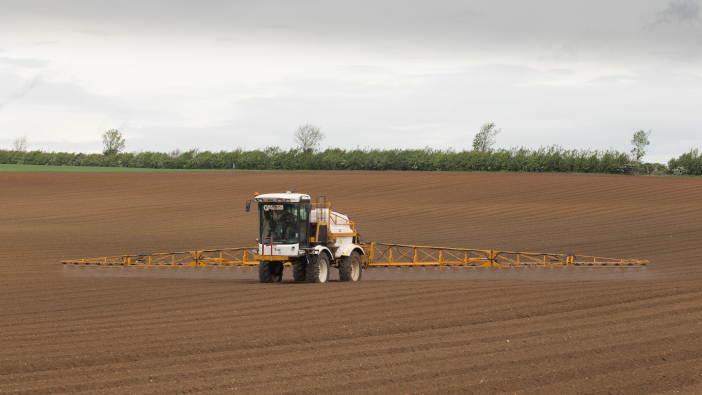Potato growers are facing a very different situation to that seen in 2022 following the delayed planting of much of the UK’s maincrop, according to Corteva Agriscience.
A wet March stopped travel for many, with seed stocks stuck in sheds while nearly 120mm of rain fell. This was 80% more than is typical for the month.
South West and South East England were the worst affected regions, while growers in the North East struggled with frosts and snow.
While planting is now underway, crops are likely to have been drilled later than normal, and where April showers have continued residual herbicides may not have been applied in a timely manner, if at all.
Craig Chisholm, Corteva’s field technical manager for potatoes, said: “There are three main reasons why weed control is important in potatoes. The first is protecting the crop from yield-robbing competitive weeds, and the second is ensuring harvest machinery is not hampered or slowed down.
“But perhaps the most important reason to keep weeds in check is to reduce the risk of blight through sheltering leaves or contributing to a more favourable microclimate.”
He advised growers to use a post-emergence approach as the crop meets warming, moist conditions. Titus is a sulfonylurea herbicide containing rimsulfuron for control of broad-leaved weeds in potatoes. Applied in mixture with metribuzin, it reportedly provides the most comprehensive post-emergence weed spectrum.
“Titus is most effective against small, actively-growing weeds, and should be applied before the crop provides a sheltering canopy, which may compromise activity,” he added.
“Titus is safe across all varieties, but should not be applied to seed crops, and users should check that their variety is listed as tolerant of metribuzin before including in the mix.”
For more information go to www.corteva.co.uk


